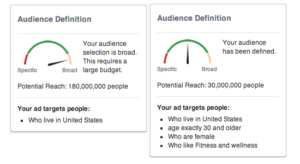
I’ve become a quick fan of Michael Lewis’ new podcast, “Against the Rules“. The basic premise is the state of the “referee” in our society (i.e. the impartial third-parties that are brought in to keep all parties honest). In limited airings, he’s hit on roles of art authenticators, ombudsmen, government agencies, and actual referees.
In listening to the first few episodes, I’m hoping he covers the world of digital advertising because, well, we don’t have a good referee at all. Let’s take a quick look at clients’ flawed options for keeping everyone honest.
Hiring an auditor
Impartiality: No. Hired by the client to find flaws in media buys
All Media Channels Covered: Somewhat. An auditor will request data is provided from all channels, but some channels don’t allow for full transparency.
Sales Auditing: Most media auditors focus on buys designed to drive awareness or consideration. The KPIs being actual impressions vs. promised impressions, actual video views vs. promised video views, etc.
Built for Today’s Media Plans: No. Even in a review of branding buys, they’re not built to take into account media buys that pay on non-impression metrics like engagements. It seems as though most media auditors have attempted to add digital performance metrics to a document built for TV and radio.
Using the Interactive Advertising Bureau (IAB) guidelines in contracts
Impartiality: Yes. They’ve created their guidelines without a particular incentive in mind beyond being fair. In my opinion, they’re standards are weak for advertisers, but they are guidelines nonetheless. Your startup may want to consider upping your own standards on media buys covered by IAB standards.
All Media Channels Covered: Not really. IAB covers media channels that a 3rd-party adserver can see. See their list here.
Sales Auditing: No. IAB’s focus is on metrics like viewability and ad fraud.
Built for Today’s Media Plans: Somewhat. IAB is creating standards for other forms of media besides display and video such as podcast ads.
Implementing monitoring tools (e.g. DoubleVerify, MOAT, or White Ops):
Impartiality: Yes. There is no pull from advertiser nor publisher. The data is the data.
All Media Channels Covered: Nah. These tools cover topics like fraud and viewability in display and video channels. Search is not included.
Sales Auditing: No.
Built for Today’s Media Plans: Within their channels, yes. Unfortunately, if you’d like cherry pick solutions, you’ll be paying multiple fees.
Relying on publishers to self-monitor (e.g. Google, Facebook, and Amazon ads):
Impartiality: Hahahahahahahahaha.
All Media Channels Covered: As they are not third parties, they can only measure the channels in which you are buying media from them directly.
Sales Auditing: Yes. It is definitely in the “big boys'” interest for your ads to show a positive ROI.
Built for Today’s Media Plans: Yes. Why? Because they have the resources to include metrics that are important to advertisers. On their terms.
To sum this up, we have four flawed referees. Either they are limited in their scope, don’t measure what advertisers really should be measuring, or are self-policing. This is not a knock on the third parties that are trying to make a difference. They have solid intentions and can be effective.
The real issue in our industry is that it is controlled by a handful of players who have created the walled gardens we’re used to, and we’re stuck relying on their self-reported data. Good luck trying to build a media plan without Google or Facebook.
Due to their distrust of each other, we’re unable to use third-parties to independently measure search impressions. For example, if we build a custom audience in Facebook, we’re forced to rely on Facebook’s impression tracking and hope it’s accurate.
Like most decisions you have to make in your startup, this boils down to a trade off based on how much you care about a percentage of your budget going into a black box fraught with ad fraud and impressions that aren’t seen. If you care immensely about policing that part of your business, be prepared to on-board and adserver and pay services to measure the extent of your problem. Also, be prepared to have someone enforce publishers who break the rules. It’s up to you whether that time and dollar commitment makes sense for where you are today. Reach out for an opinion on your situation.
- « Previous
- 1
- 2
- 3
- Next »










